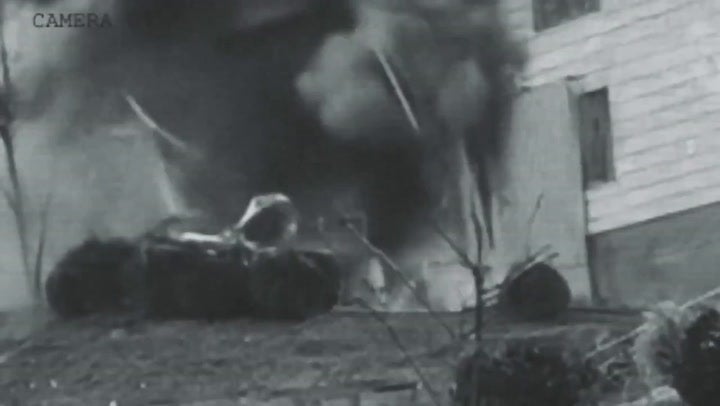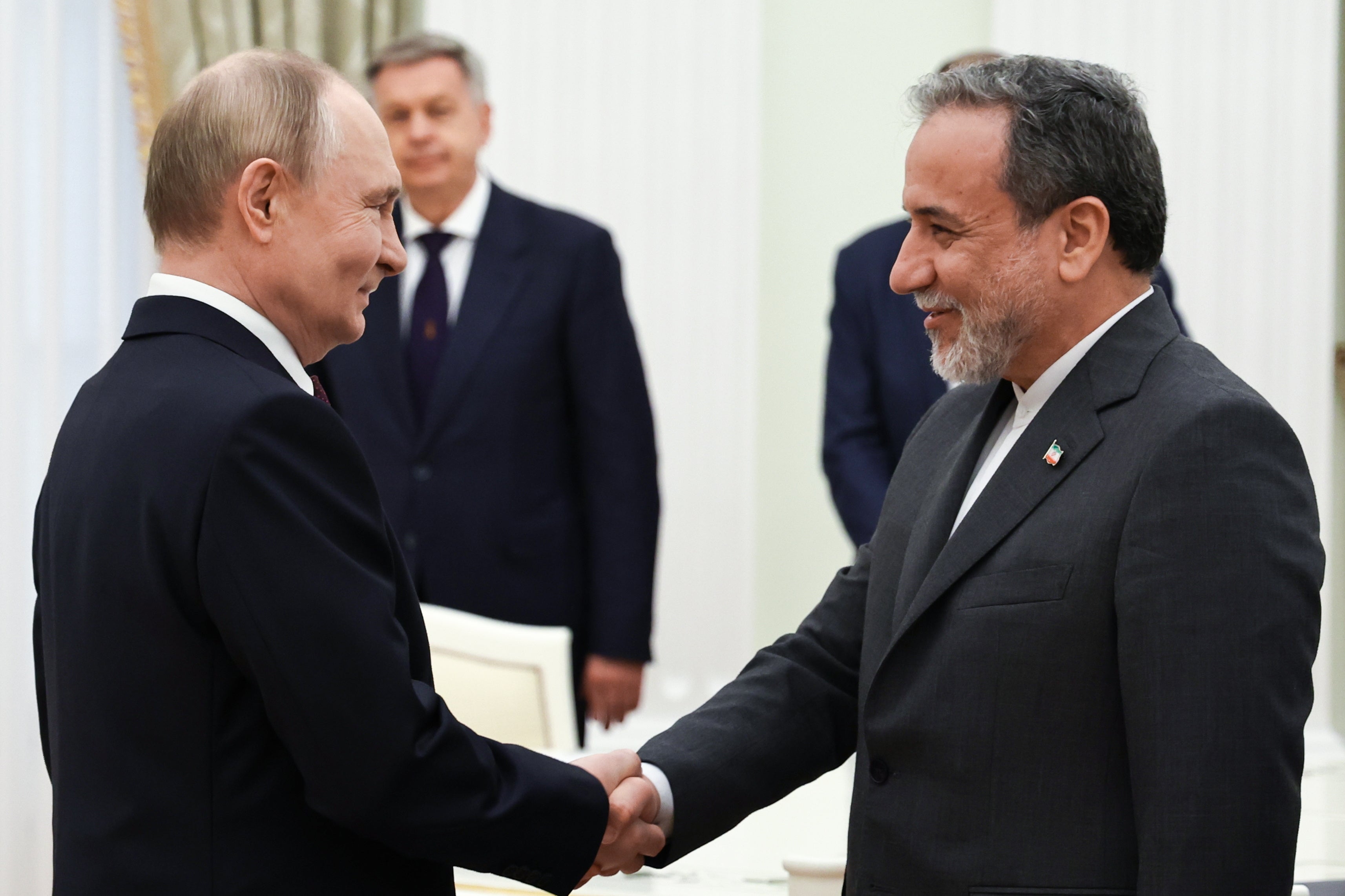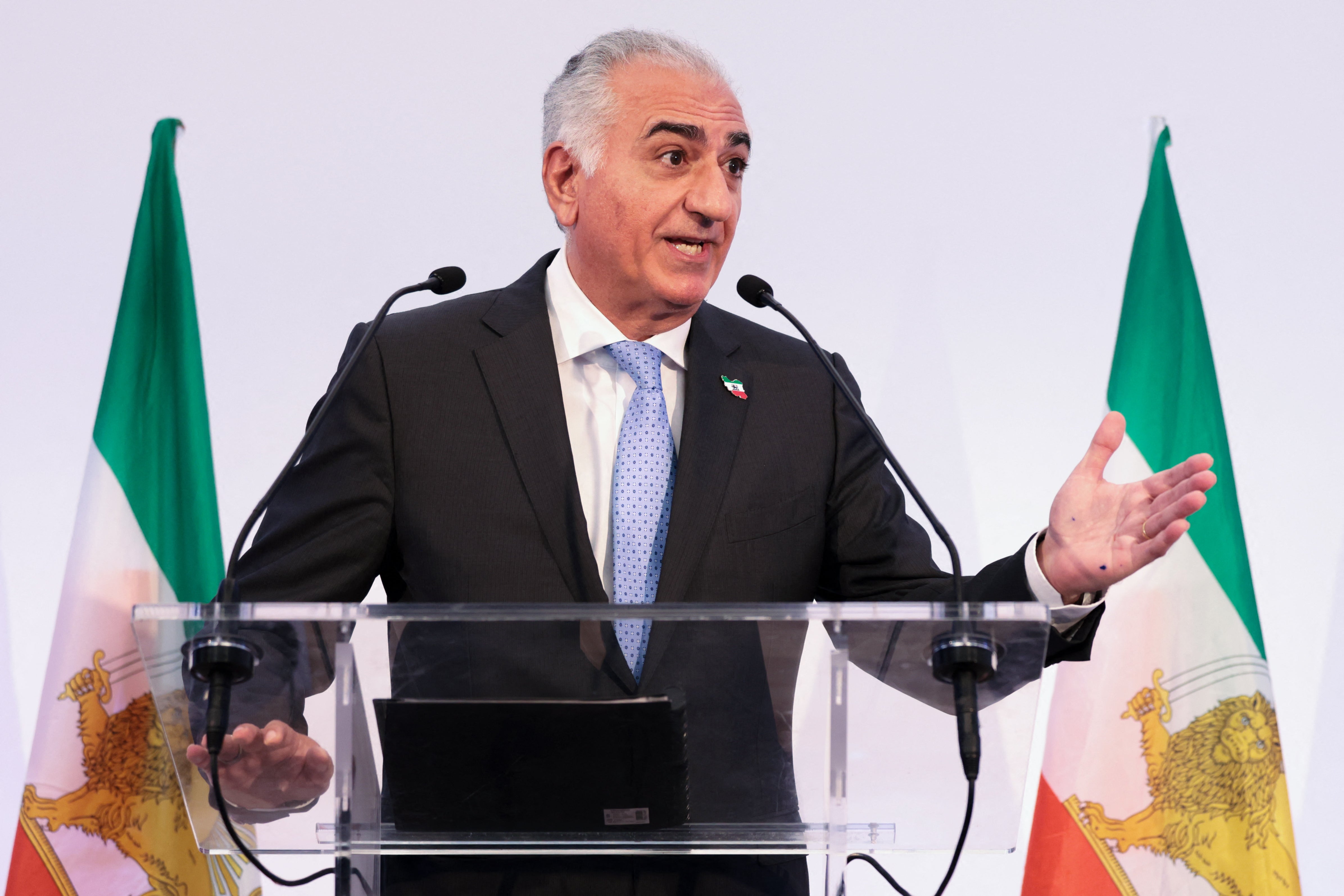Israel struck Iran’s Fodow nuclear site and key military and intelligence facilities on Monday as the conflict continued to escalate with attacks from both sides.
The White House was also left scrambling Donald Trump also entertained the idea on Sunday of a regime change in Tehran following the strikes on Iran’s nuclear sites, leaving the White House scrambling 24 hours later to say the president was “simply raising a question” about the future of Iran’s rulers.
The US embassy in Qatar warned its citizens to take shelter as fears grow of an imminent Iranian response, after Iran’s army chief warned that the US strikes on Iranian nuclear sites have given Tehran a “free hand” to "act against US interests and its army”.
Qatar - which houses the biggest US base in the Middle East - also closed its airspace on Monday evening amid fears of a retaliatory strike from Iran.
Iran responded after the US struck Iran’s three key nuclear facilities on the weekend, and the UN’s nuclear watchdog said on Monday that “very significant damage” was expected to have occurred at Fordow during the US attack.
The head of the International Atomic Energy Agency Rafael Grossi said ahead of an emergency meeting that "given the explosive payload utilised and the extreme(ly) vibration-sensitive nature of centrifuges, very significant damage is expected to have occurred”.
Fordow was also struck by Israel on Monday as it launched an offensive targeting Iranian military and regime centres, including the notorious Evin prison. Israel warned of other strikes in the coming days.
Video of the attack on Evin shows a projectile smashing into the entrance of the facility which is used to hold political prisoners, including high-profile foreign detainees.

Israeli defence minister Israel Katz said the defence force was using “unprecedented force” against “regime targets and governmental oppression entities in the heart of Tehran”.
“For every attack on the Israeli home front, the Iranian dictator will be punished, and the strikes will continue with full force,” he said.
The Israeli Defence Force (IDF) said it had hit two military command centres as well as the general intelligence directorate for internal security forces.
“The IDF continues the ongoing effort to degrade the Iranian regime’s military capabilities and will persist in its efforts to ensure the security of the State of Israel,” the IDF said in a statement.
Iran launched a new missile barrage at Israel on Monday, described as a new wave of its operation "True Promise 3," targeting Haifa and Tel Aviv.

The Tehran regime has also sought help from its ally, Russia, sending foreign minister Abbas Araghchi to meet with Vladimir Putin in Moscow and deliver a letter from Iran’s Supreme Leader Ayatollah Ali Khamenei seeking support from the Kremlin.
During their televised meeting, Putin said there was “no justification” for the US bombing of Iran.
"The absolutely unprovoked aggression against Iran has no basis and no justification," Putin told Araghchi.
"For our part, we are making efforts to assist the Iranian people.”

Exiled Iranian crown prince Reza Pahlavi says the Iranian regime will not back down, and urged Western leaders not to support Tehran.
“If the West throws the regime a lifeline, there will be more bloodshed and chaos, because this regime will not stop before surrender after it has been humiliated; it will lash out,” he said, using a press conference to call on Iranians to help him lead the country to become a “secular, democratic” country.
“As long as [the regime] is in power, no country and no people are safe - whether in the streets of Washington, Paris, Jerusalem, Riyadh or Tehran,” he said.

The head of Nato Mark Rutte said the biggest worry about the Iran conflict is ‘Iran having a nuclear weapon’.
Speaking ahead of a two-day Nato summit in The Hague, the secretary general was asked what his biggest fear was when it came to the escalating conflict around Iran.
Mr Rutte responded: “Let's focus on the essentials. My biggest fear would be for Iran to own and be able to use or build nuclear weapons.
He continued: “It would be a stranglehold on Israel, on the whole region and other parts of the world, and that's why Nato has said Iran should not - and this is a consistent position of Nato - Iran should not have its hands on a nuclear weapon.”
Ukraine-Russia war latest: ‘Assassination attempts’ on Zelensky revealed
First evacuation flight takes off as 1,000 Brits hope to escape Israeli warzone
Heat wave: Dangerous temperatures swallow multiple US states with record highs
How will Iran’s embattled Supreme leader respond to US strikes?
US-Iran latest: White House scrambles to clarify Trump’s ‘regime change’ posts
The maps and numbers you need to know after US intervene in Iran-Israel conflict







